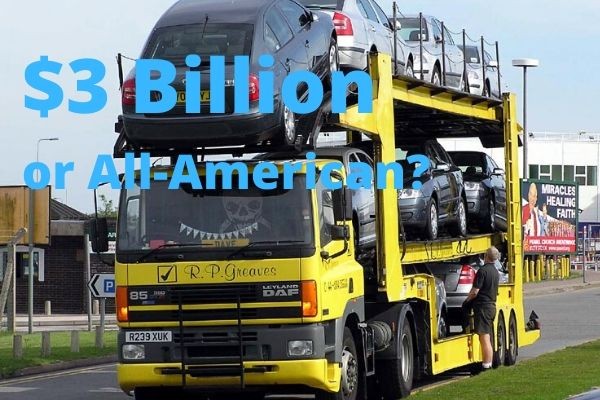
Automakers in the US will have to pay $3 billion in tariffs if the components are not American made. It will be troublesome none the less for those who not comply,
JUST IN: The costs for keeping the automotive industry in the US will not be so mild for major automakers with a big stake in the North American auto market. In a move that just got the approval from President Donald Trump, carmakers can look forward to paying billions in tariffs if they wish to keep their cars and its components manufactured elsewhere outside the country.
This is will roll out for the next ten years, and requires total compliance with the edict. One question that wants an answer, is how it will affect the US auto industry, including its biggest American and overseas players. The next consideration falls on how these costs will affect the prices of cars, in the foreseeable future. Most affected are the consumers who might be impacted severely, with price increases in their fave brands.
Another curious point is how much will it affect the SUV and the developing the electric vehicle industry, as the effects of the edict start to be felt. For sure, the buyers are going to take the brunt of the increase. Someone has to pay for the tariffs, and it may not come totally from the car companies or dealerships. The $3 billion is a big number that cannot be compared to millions, such a large amount cannot be created from thin air.
Read: Expect More than SUVs at the 2019 L.A. Auto Show with the Best Show Stoppers on the Floor
One of the biggest influences of this project's costing is done by a non-aligned agency related to the new US-Mexico-Canada Agreement. This will be covered by the House of Representatives to wrangle out the issues better, for everyone concerned on Thursday. One condition for the carmakers to be tariff-free between Mexico and Canada is to buy American made steel and aluminum for the cars to be sold in the US.
Another aspect of this agreement that participant should comply with is 75% regional content compliance, which bigger than the NAFTA agreement. So, the cost of doing business in the US is getting the raw steel and aluminum or pay up.
One more point is that raw vehicle material is from 40% to 45% and only Canada and the US where the workers are paid $16 or more. Another feature of this agreement is all vehicles should be American-made if it is not then the tariff will be charged.
It is right for the car industry to be worried because the Congress Budget Office (CBO) expects that many carmakers will not get free-tariffs at all. Perhaps the bad news may be forthcoming, with a no-holds-barred opinion that USMCA partners will not accept the tariffs at all. The objective goal is to get a 100% American-made car, that will be without a tariff. When it comes to importing cars and car parts, will involve wrangling and not so fine treatment for not complying at all.
Related Article: Automakers to pay $3 billion in new U.S. tariffs under USMCA: budget estimate
See Now: OnePlus 6: How Different Will It Be From OnePlus 5?






















